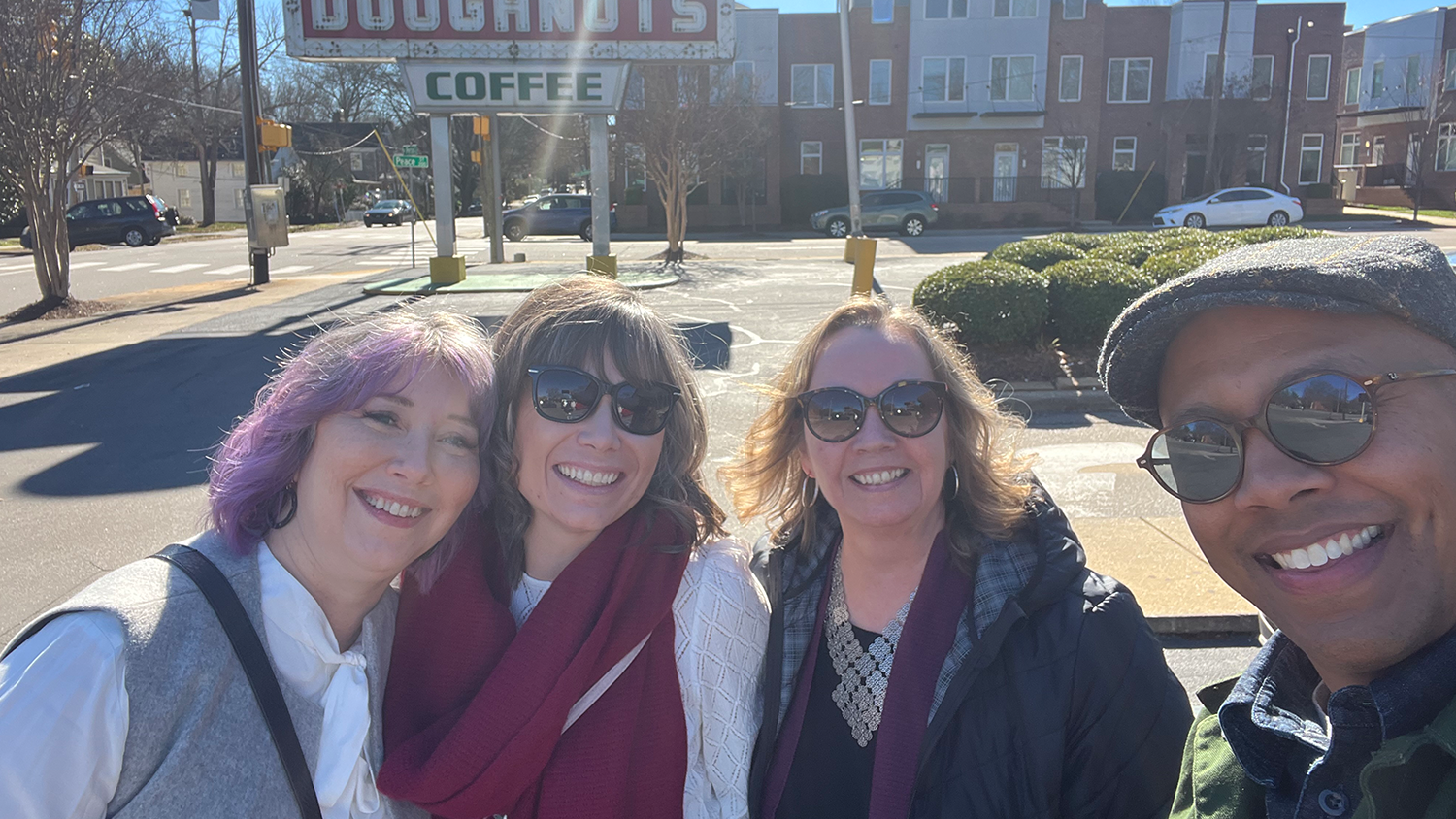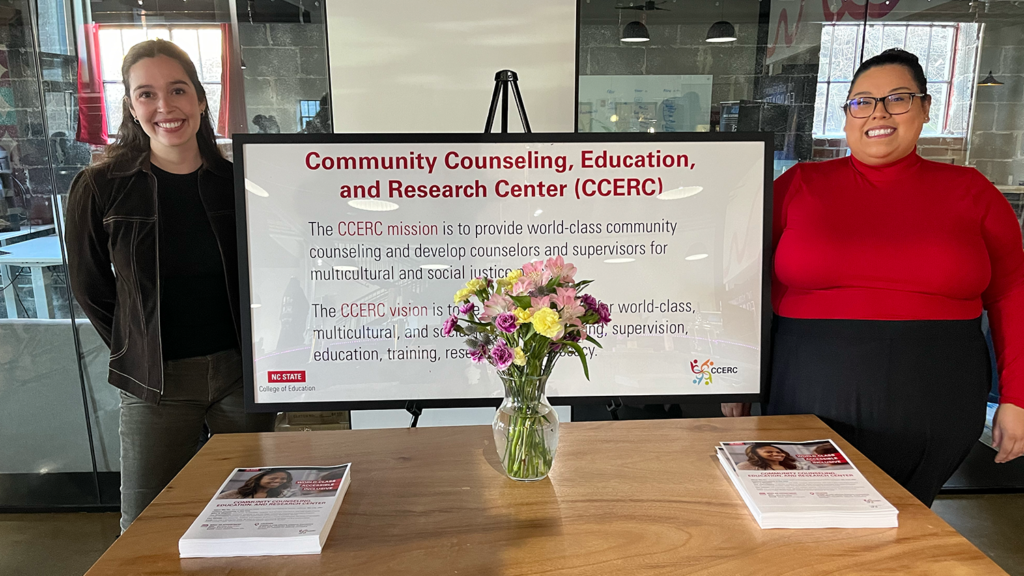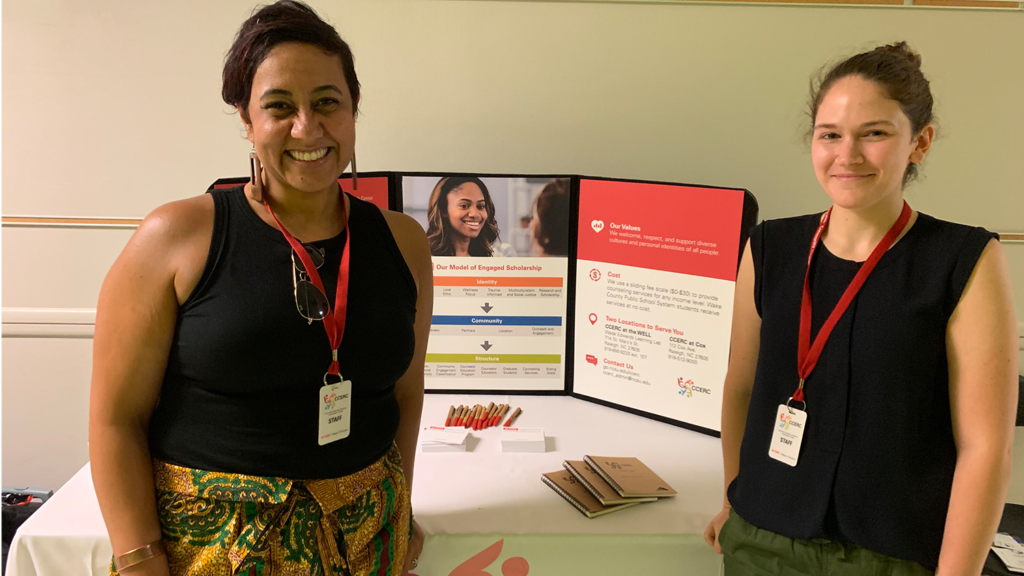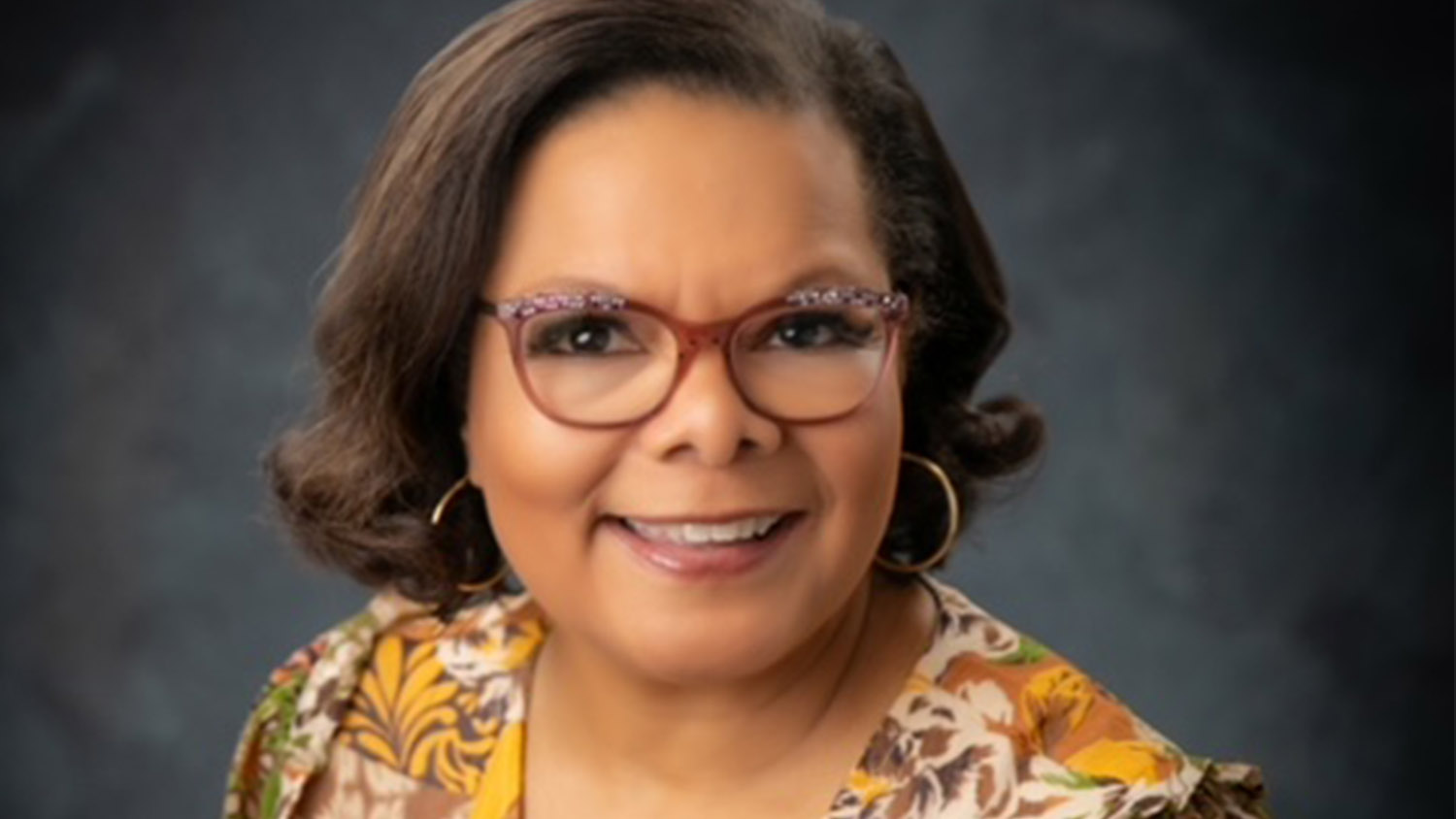College of Education’s Community Counseling, Education, and Research Center (CCERC) Becomes International Model for Community-embedded Counseling Services

In September 2023, the Red Spruce Mental Health Centre opened its doors for the first time in rural Nova Scotia, Canada, to provide experiential learning opportunities as part of Acadia University’s Master of Education Counseling Program and address a need for mental health among the community.
Although located more than 1,000 miles from Raleigh, North Carolina, the creation of this center has roots at NC State, taking inspiration from the College of Education’s Community Counseling, Education, and Research Center (CCERC), which is led by Professor of Counselor Education Marc Grimmett.
“Our program at Acadia University had been aspiring to develop an internal wellness center that is campus- and community-facing for about a year and, in our research on existing centers, we came across Dr. Grimmett and Dr. [Helen] Lupton-Smith’s publications on the CCERC model,” said Associate Professor and Red Spruce Mental Health Centre Director Tanya Surette. “We were drawn to the identity components of the model and the centering of a love ethic, multiculturalism and social justice, and a world-class standard. These foundations mapped on to our program’s vision and values, but we hadn’t previously seen them articulated so clearly as they were in the CCERC model.”
Opened in 2016, CCERC is affiliated with the Counselor Education Program in the College of Education and offers free or low-cost mental health care to individuals, families and couples who may not otherwise have access to these services, such as those without health insurance or those who could not afford to pay for counseling out of pocket.
In addition, CCERC serves as a training opportunity for master’s-level students in the Counselor Education Program to complete their internships and practicum hours.
“We don’t want there to be any difference between someone who has a whole lot of money and someone who has no money in terms of the quality of services they receive,” Grimmett said. “I would like to say that our services are probably among the best because our students are actively in classes, learning from their professors, and they’re receiving supervision while they are seeing clients.”

A recent study led by Grimmett, co-authored by several College of Education alumni and published in the Journal of Multicultural Counseling and Development, examined the impact the CCERC model has had on clients who received counseling services.
In particular, CCERC participants cited the mutual benefit for clients and student-counselors as a positive impact of the center.
“To be honest, I have felt more heard in some of these sessions with [my counselor] than in past experiences elsewhere because you can tell that she is so engaged and so committed to learning and helping,” said one CCERC client anonymously quoted in the study.
In terms of mutual benefit, participants in the study also cited the research that emerges out of the CCERC model and an appreciation for the fact that their experiences are contributing to the ability to provide better care for future clients and evolve the counseling profession.
“We do a good deal of research because we’re trying to figure out what is most helpful to clients, not just in terms of the actual counseling process, but how you make the services the easiest to access and develop models that are affordable, sustainable and can reach more people.”
Spreading Impact Nationally and Internationally
In the years since CCERC launched at NC State, the model has been replicated by other institutions who hope to spread impact to their communities while training the next generation of high-quality counselors.
Helen Lupton Smith ’96 PHD, who helped launch CCERC with Grimmett, took the first step in expanding the model when she joined North Carolina Central University as an associate professor of counselor education and opened the Eagle Counseling, Consultation, and Research Clinic (ECCRC) in 2022.

The center at Acadia University is the first example of CCERC’s impact expanding internationally.
When Surette and her colleagues had the opportunity to visit NC State in 2023 and meet with Grimmett, she said she was impressed by the way CCERC closed the gap between theory and practice that often exists in academia.
“All aspects of the model – from the world-class standard to trauma-informed approaches to a love ethic – it was all felt in our interactions at NC State,” Surette said. “Dr. Grimmett has created a legacy that has, and will continue to have, a profound impact on the graduate students and clients that are involved with CCERC.”
With many aspects of CCERC having been brought to the Eagle Counseling, Consultation, and Research Clinic and Red Spruce Mental Health Centre, Grimmett continues to work in partnership with faculty in both programs. He is proud not only of these scholarly connections but of the ability to see the model he developed bringing community-engaged scholarship and a solution to mental health needs to a broader population.
“The [creation of the] Red Spruce Mental Health Centre is a dream come true for me. Such a momentous accomplishment does not happen by luck, chance or happenstance. It comes about by heart, hope, vision and dogged perseverance,” Grimmett said. “When I started my career in counselor education at NC State about 20 years ago, I could have never imagined that I would develop a transformative, international, professional partnership around a shared commitment to mental health care for the community.”
- Categories:


